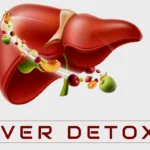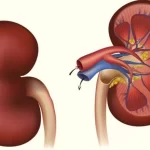Why does food poisoning happen?
We all know very well about how important food is for the development of our body. But quite often the diet becomes injurious to our health as well. Many physical problems occur due to food, in which food poisoning is the most common and most serious problem. Everyone knows that food poisoning is a serious problem, but very little is known about it. If you want to keep yourself away from the danger of food poisoning, then you should read this article till the end and get all the information related to food poisoning.
What is Food Poisoning?
Food poisoning is a stomach infection that can be caused by bacteria, viruses, or other bacteria called Staphylococcus. These bacteria, viruses, or other bacteria go into the stomach with our food, due to which we have to face serious problems like food poisoning. Apart from eating, drinking dirty water, drinking too much water, or taking any other drink also leads to the problem of food poisoning, due to which problems like frequent vomiting have to be faced.
Are there many types of food poisoning problems?
Yes, the problem of food poisoning can be of many types. But there are 7 main types of it, which are sometimes kept in the category of cause. The seven main types of food poisoning are described below:-
- E. coli
- Salmonella
- Listeria
- Trichinosis
- Staphylococcus
- Campylobacter
- Clostridium
E. coli
E. coli or Escherichia coli, is a bacterium that has always lived in the digestive system of humans and animals. The E. coli bacteria already present in the digestive system are not harmful to humans, but are harmful when this bacterium enters the body from outside. The E. coli bacterium can be so harmful that it can even kill a human. The E. coli bacterium inside humans is almost always caused by contact with animal or human feces. It usually occurs when contaminated water or food is consumed. Flies sitting on open food spread the E. coli bacterium the most, which can cause serious problems like food poisoning.
Salmonella
Salmonella infection is a common bacterial disease that affects the intestinal tract of the digestive system. Salmonella bacteria usually already live in the intestines of animals and humans and are passed out of the body through feces. But when this bacterium comes back into the stomach through contaminated water or food, it can cause serious infection. Young children, senior citizens, and people with weakened immune systems are most susceptible to salmonella bacteria. Usually, people with salmonella infection have no symptoms. But when the infection is severe, the infected may develop diarrhea, fever, and abdominal cramps within 72 hours. Most healthy people recover within a few days without specific treatment. Quite often salmonella infection can cause severe dehydration in the patient due to diarrhea. In addition, if the infection spreads beyond the patient’s intestines, the patient may face serious problems that may even lead to death of the patient.
Listeria
Listeria monocytogenes are the bacteria that cause rapid food poisoning. Infection with this bacterium can cause fever, muscle pain, and diarrhea in many people. Severe infection can cause headaches, meningitis, convulsions, and death. Listeria bacteria can live in soil, water, dust, animal feces, and other substances. Listeria infection rarely makes healthy people sick, but it can be serious for pregnant women, children, the elderly, and those with weakened immune systems.
Trichinosis
Trichinosis is a roundworm bacterium that reproduces in others’ bodies. This bacterium is commonly found in meat-eating animals. These animals include boar, rooster, walrus, fox, bear, and wild boar. If raw or undercooked meat of these animals is eaten, this bacterium can enter the person’s body. This bacterium can enter the body of a person in the form of a fully developed and egg, from which it develops by living in the intestines, due to which the person has to face many serious problems. People who eat more pork are more prone to this bacterium, while very few people are aware that pigs are both vegetarian and non-vegetarian like humans.
Staphylococcus
Staphylococcus aureus is a type of germ that lives inside the nose and skin of about 30% of people and animals. Most of the time, the staff does not harm; However, sometimes staph causes infection. But if this germ enters the stomach with food or water, then it starts causing physical problems within one to six hours, which gets cured on its own in two to three days. This infection may occur on our nose and skin but it does not spread from one person to another. Due to this, in addition to food poisoning, a person can have heat, swelling, and skin-related problems in the stomach and body.
Campylobacter
Campylobacteriosis is an infection caused by Campylobacter bacteria that is transmitted through contaminated water and contaminated food. Due to the Campylobacteriosis infection, a person may have problems with diarrhea, indigestion, and vomiting. This is one of the biggest reasons for getting food poisoning. This infection also gets cured on its own, but if it is serious, it is very important to talk to the doctor.
Clostridium
Clostridium is a bacterium that occurs in the digestive system of humans and animals. It is not harmful to us in small quantities, but due to its increase in the amount in the body, it causes problems related to the stomach. Due to this, the digestive system is seriously affected and it can cause problems ranging from abdominal pain to abdominal bloating. Non-vegetarian people are more prone to this infection, to avoid this, only fully cooked meat should be eaten.
What are the symptoms of food poisoning?
If a person suffers from a serious problem of food poisoning, he may have many other physical problems along with digestion, which is as follows:-
- stomach ache
- abdominal cramps
- having diarrhea
- loss of appetite
- blood in stool
- chills and fever
- frequent headaches
- nausea and vomiting
- Weakness (may be severe)
In addition to the above-mentioned symptoms, if food poisoning is severe, the following symptoms may also appear in the patient along with the general symptoms:-
- dry mouth
- having severe dehydration
- blood in urine
- the increased amount of acid in the stomach
- difficulty seeing or speaking
- infrequent urination
- having diarrhea that lasts for more than 3 days
- fever over 102°F (38.9°C)
- Unbearable pain in the abdomen (usually in the middle of the abdomen)
If you experience any of these symptoms, contact your doctor immediately. At the same time, different symptoms may appear in each patient from another patient, because the cause of food poisoning may be different in another patient.
What is the cause of food poisoning?
Apart from the common causes of food poisoning, there can be many reasons behind the occurrence of this serious problem, but we can mainly divide it into three parts, which include: Bacteria, Parasites, and Viruses. We have talked about food poisoning caused by the bacteria above which is also known as the type of food poisoning. Among other reasons, the problem of food_poisoning caused by bacteria is the most serious. Let us now know about the rest of the causes of food_poisoning.
Parasites: – Food poisoning can also be caused by parasites, although it is quite rare. It enters our digestive system mainly through contaminated water and contaminated food and then it starts causing serious problems like food poisoning. If fruits and vegetables are not washed properly, then the possibility of this food_poisoning remains high.
Virus: – The problem of food poisoning can also be caused by a virus. Rotavirus, Astrovirus, and Hepatitis A virus are the main viruses behind food_poisoning. Like parasites, it is also a rare cause of food_poisoning.
Common causes of food poisoning
Usually, the problem of food poisoning is due to the lack of cleanliness related to the diet. Mainly food poisoning occurs due to the following reasons:-
Using unwashed utensils – If not properly cleaned utensils are used for cooking, then it can also cause food poisoning. Because in such a situation many types of creatures may have passed through the utensils (for example cockroaches).
Consuming spoiled dairy products – If you consume spoiled dairy products, then it can also cause food_poisoning. This includes stale curd, milk on the verge of spoilage, and butter.
By taking seafood – If you are more fond of taking seafood, then you should cook it after cleaning it properly and make sure that your fish or any other seafood has come from clean water.
Cooking or consuming food without washing hands – If you cook or take food without washing hands, then bacteria can go into the stomach along with the food, due to which there can be a problem of food poisoning.
Not taking clean water – Due to not taking clean water, the problem of food_poisoning is the most. This problem of food poisoning is highest in most developing countries. Try to take only clean water, but if you take drinking water from a well, pond, or river, then you should drink it after boiling it before drinking it.
By consuming unwashed vegetables or fruits – If you include your fruits or vegetables in the diet without washing them properly, then you can also have a problem with food poisoning. In such a situation, parasites can enter your digestive system.
By consuming raw meat – If you take more non-vegetarian food then you should keep in mind that whatever meat you are taking should be completely cooked. If you also take undercooked meat or eggs, then it can cause you the problem of food_poisoning. Often, many types of fossils are growing in raw meat.
Being Hereditary – Apart from other serious diseases, food_poisoning can also be a hereditary disease. If food poisoning has been a problem in your family before, then you may also have this problem.
Weak Digestive System – Individuals who have a weak digestive system can also often have the problem of food poisoning, which usually gets better on its own.
How to get rid of food poisoning?
The only way to get rid of any disease is to identify it as soon as possible and start taking its treatment. If you are battling with food poisoning, then you can take treatment from the doctor for it, and also you can get rid of this serious problem quickly by adopting some of the following measures:-
Take ORS – During food poisoning, there is a lack of water in the body, to overcome this deficiency, ORS should be taken from time to time. If the patient consumes this instead of plain water, then he can get relief soon.
Eat simple food – The main reason for getting food poisoning is bad and more spicy food. In such a situation, if the patient takes simple food, then it can happen soon. In the case of food_poisoning, the patient should stay away from oil, spices, and more chilies. In this case, patients can include porridge, khichdi, roti, and plain vegetables in their diet.
Use curd and buttermilk – If you are struggling with food poisoning then you should include curd or buttermilk in your diet. Due to this, frost reaches the stomach, and the lack of water in the stomach is removed.
Take care of cleanliness – Special care should be taken of cleanliness around the patient when food poisoning occurs because it is one of the reasons for food_poisoning. Along with cleaning hands and feet, take special care of cleaning utensils as well.
Note: – Before making any change in diet or before taking any medicine, the patient must consult his doctor






